
China
22:07, 23-Mar-2018
Netizens amazed by vendors’ fluent English in Beijing’s Silk Street Market
CGTN
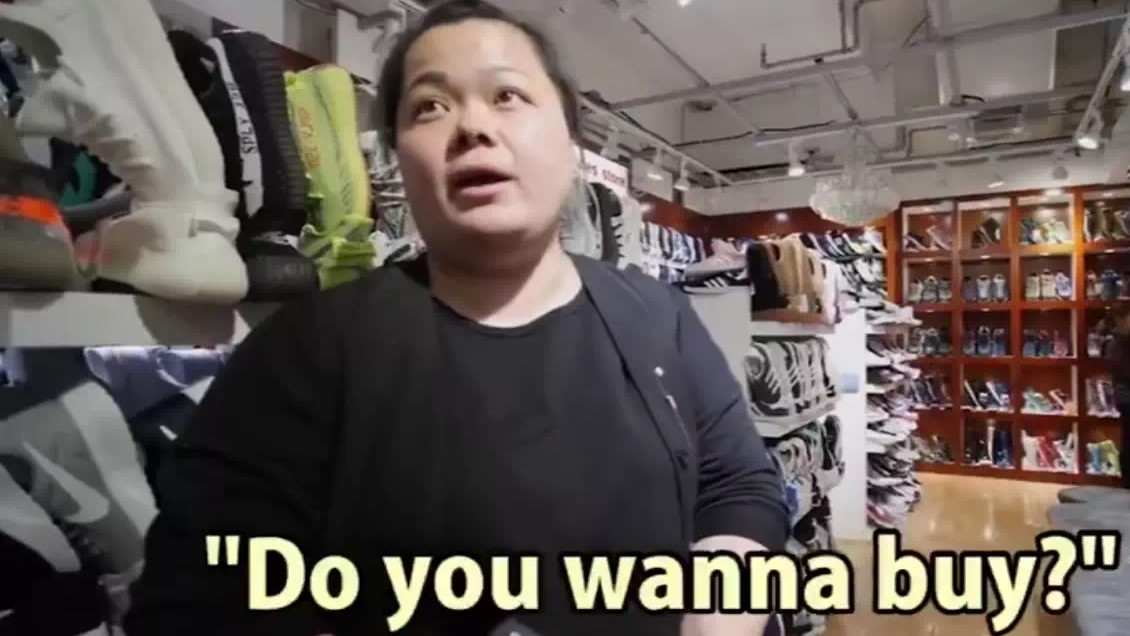
A clip of a saleswoman speaking fluent English in order to sell a pair of sneakers has become the newest viral video sensation on China's social media.
The video, filmed and edited by a foreign buyer “Colin Abroadcast” who lives in Beijing now and has apparently grasped the bargaining tips at Beijing’s Silk Street Market, has gained more than 1.7 million views within a week since its launch on YouTube.
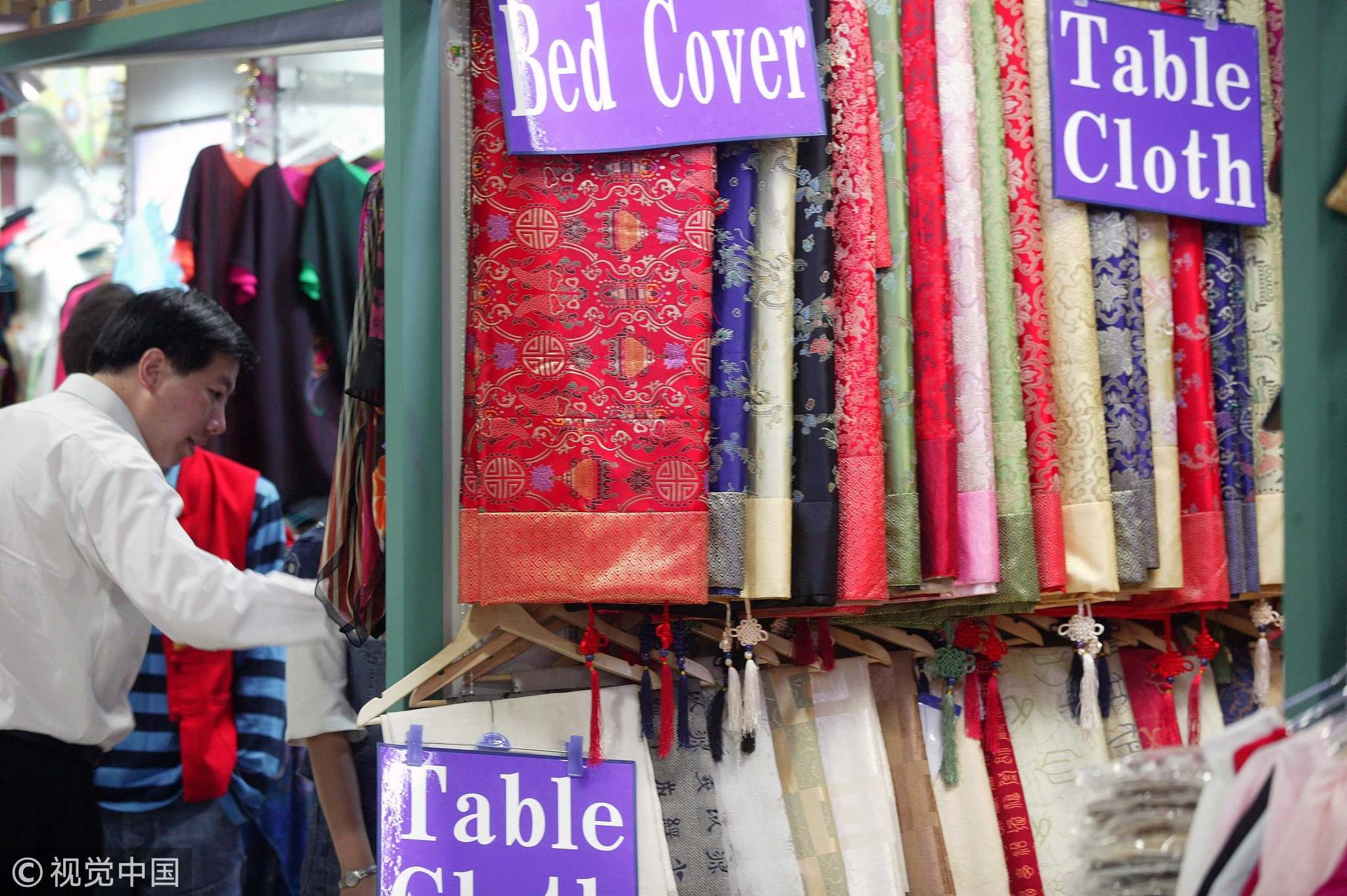
A silk stall at the Silk Street Market /VCG Photo
A silk stall at the Silk Street Market /VCG Photo
Used to be an outdoor market before 2005, Silk Street Market now is a shopping mall, which accommodates over 1,500 retailers and is regarded as one of the symbols of Beijing together with the Great Wall, the Summer Palace, and Peking duck.
The market has gained its reputation among overseas tourists who came to buy traditional Chinese silk products since 1985. At one time, good quality fake brands were also what the market was famous for, but measures have been taken to curb that in the past decades.
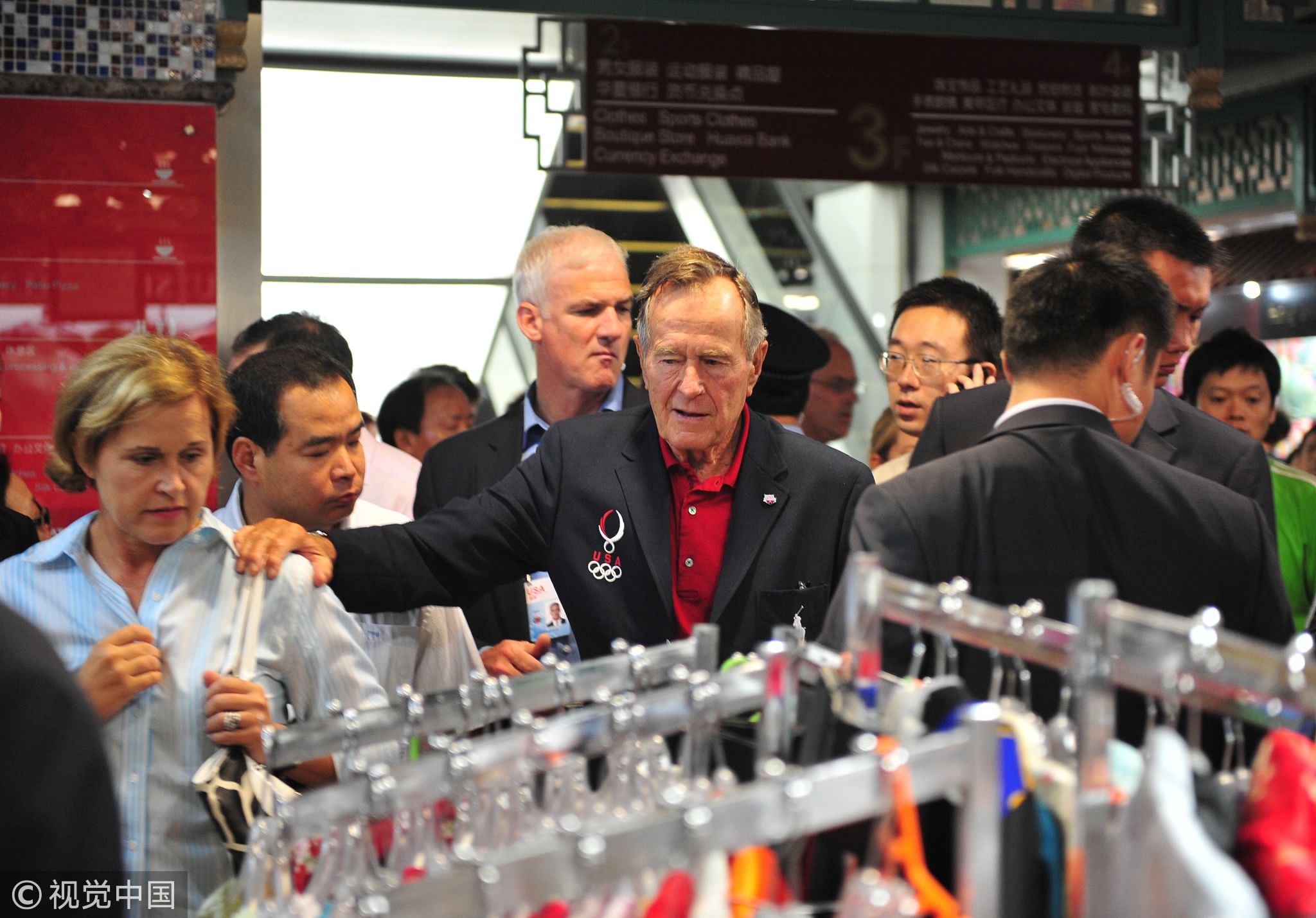
The former president of the US, George H.W. Bush, visited Silk Street Market in 2008. /VCG Photo
The former president of the US, George H.W. Bush, visited Silk Street Market in 2008. /VCG Photo
Now, no matter what you want to buy, this market can meet your every needs and most of the vendors speak English.
Moreover, as nearly nothing has a price tag and everything is overpriced, potential buyers have to bargain hard.
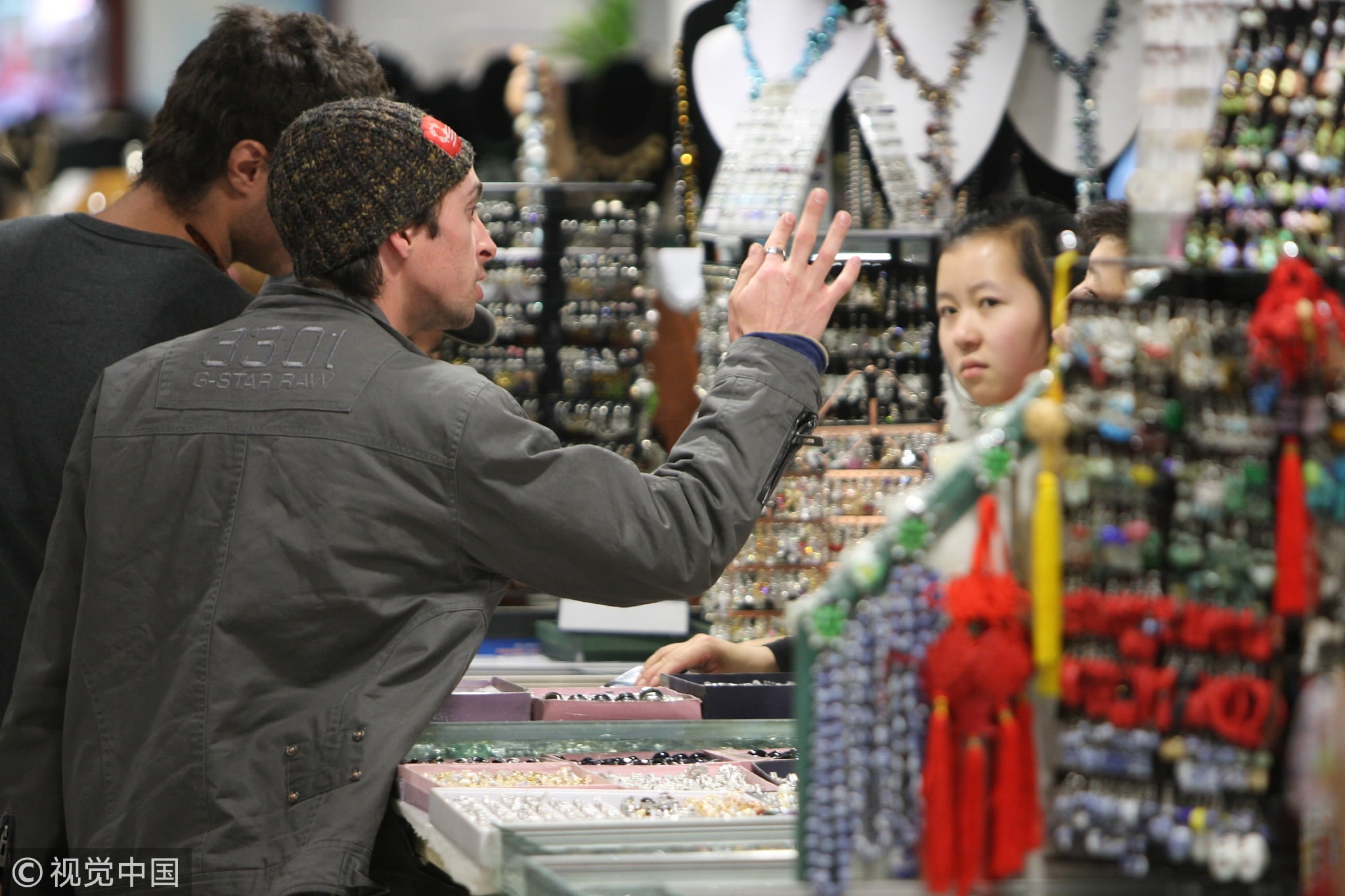
A foreign customer bargains with a vendor at Silk Street Market. /VCG Photo
A foreign customer bargains with a vendor at Silk Street Market. /VCG Photo
Since dealing with a great number of foreign customers has become a daily routine for staff at the market, instead of using simple words, stall operators here are able to communicate with foreigners in fluent English. Some even know a few selling phrases in other languages, like Spanish, German and French.
Obviously, the woman in the video is a veteran among these “sales elites.” With questions including “Do you wanna try?” and “How much do you wanna buy?", the sale talk starts.
“If you like it, I will give you a discount,” the stall owner seems ambitious about this deal. However, when the lady says the price, the customer says that it is too much and the quick-tempered woman seems annoyed by the delay.
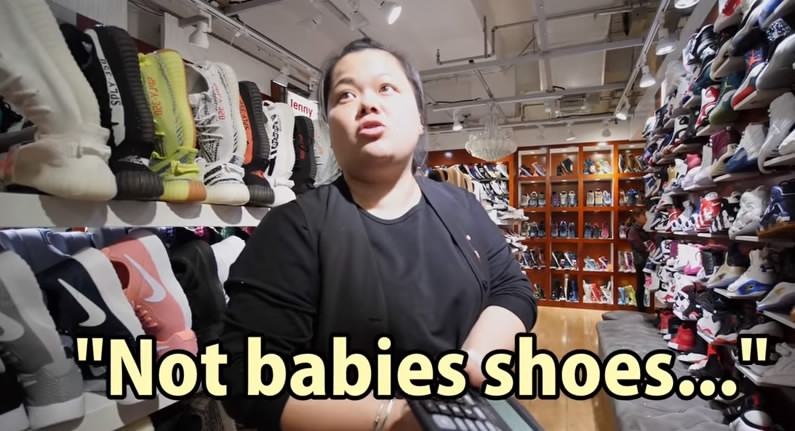
Screenshot from YouTtube Video
Screenshot from YouTtube Video
“How much do you wanna buy?", she repeats the question loudly. Looking at this “indecisive” customer, she yells “I ask you!” But actually she is not really angry, it is her selling technique. “This is new model. Do you know how much the slippers are? If you wanna buy, give me your best price,” the woman uses her selling skills actively.
When the buyer is still haggling, she adheres to the lecture "Nobody will sell it to you at this price. Not lady shoes, not baby shoes and not socks. You understand?”
After several rounds of bargaining, the woman finally agrees to sell the shoes at her so-called “cost” price and says, “I give you this price because you are very handsome.”
Although the woman’s words seem pushy and impolite to some extent, her strong selling style and accurate English expression soon gained many thumbs-ups online.
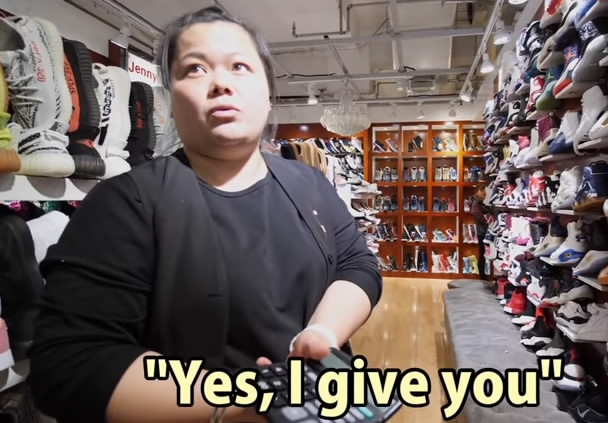
Screenshot from YouTtube Video
Screenshot from YouTtube Video
“I’m an English major student. Her English is better than me,” User @Alittlekitty commented on China’s twitter-like platform Weibo. “You can’t sell shoes without knowing some English,” another user @Xinchen wrote.
Most netizens were touched by the confident saleswoman and the hilarious back-and-forth with customers. However, the video also aroused people’s concerns about the high original price consumers are quoted.
However, it’s no surprise to foreigners who have been to the market. In 2008, Wall Street Journal released a video “Tips on bargaining in China,” teaching visitors how to bargain at the Silk Street Market. Some foreigners even consider the bargaining experience a fun touch to their journeys in China.
China was the world’s fourth most popular tourism destination in 2016, according to a report released by the UN’s World Tourism Organization (UNWTO). Over 5 billion trips were made across China last year; revenue of 5.4 trillion yuan (about 832 billion US dollars) was generated.

SITEMAP
Copyright © 2018 CGTN. Beijing ICP prepared NO.16065310-3
Copyright © 2018 CGTN. Beijing ICP prepared NO.16065310-3